Life at Tonic: The UK's first LGBTQ+ retirement community
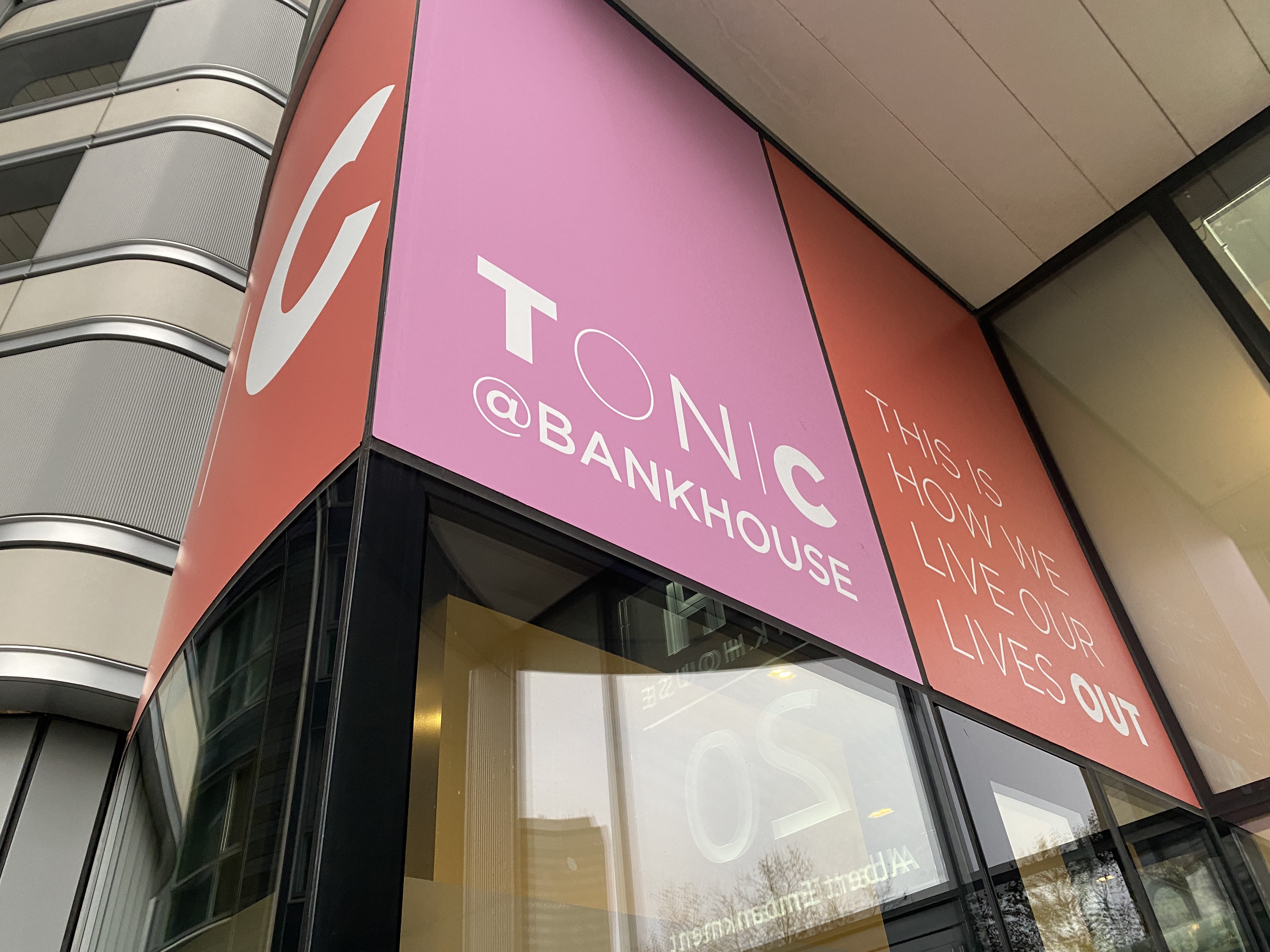
An oasis in the capital
Tucked amongst high-rise buildings next to the flowing Thames in Embankment is Tonic at Bankhouse, the UK’s first provider of LGBTQ+ affirmative retirement housing.
Tonic was established in 2014 to address the issues of loneliness, isolation and abuse which can affect older LGBTQ+ people, offering tailored housing and support that was nonexistent in the UK before Tonic opened its doors in 2021.
Tonic also welcomes those who do not identify as LGBTQ+, but who actively value the community.
The Tonic site is made up of 19 one and two bedroom apartments, overlooking London’s bustling silver skyline dotted with landmarks including The Shard and St Paul’s.
The majority of Bankhouse is an extra-care scheme run by Care Outlook for Lambeth Council, but the top four floors are Tonic. Tonic is currently home to ten residents, with five more joining in the coming weeks.
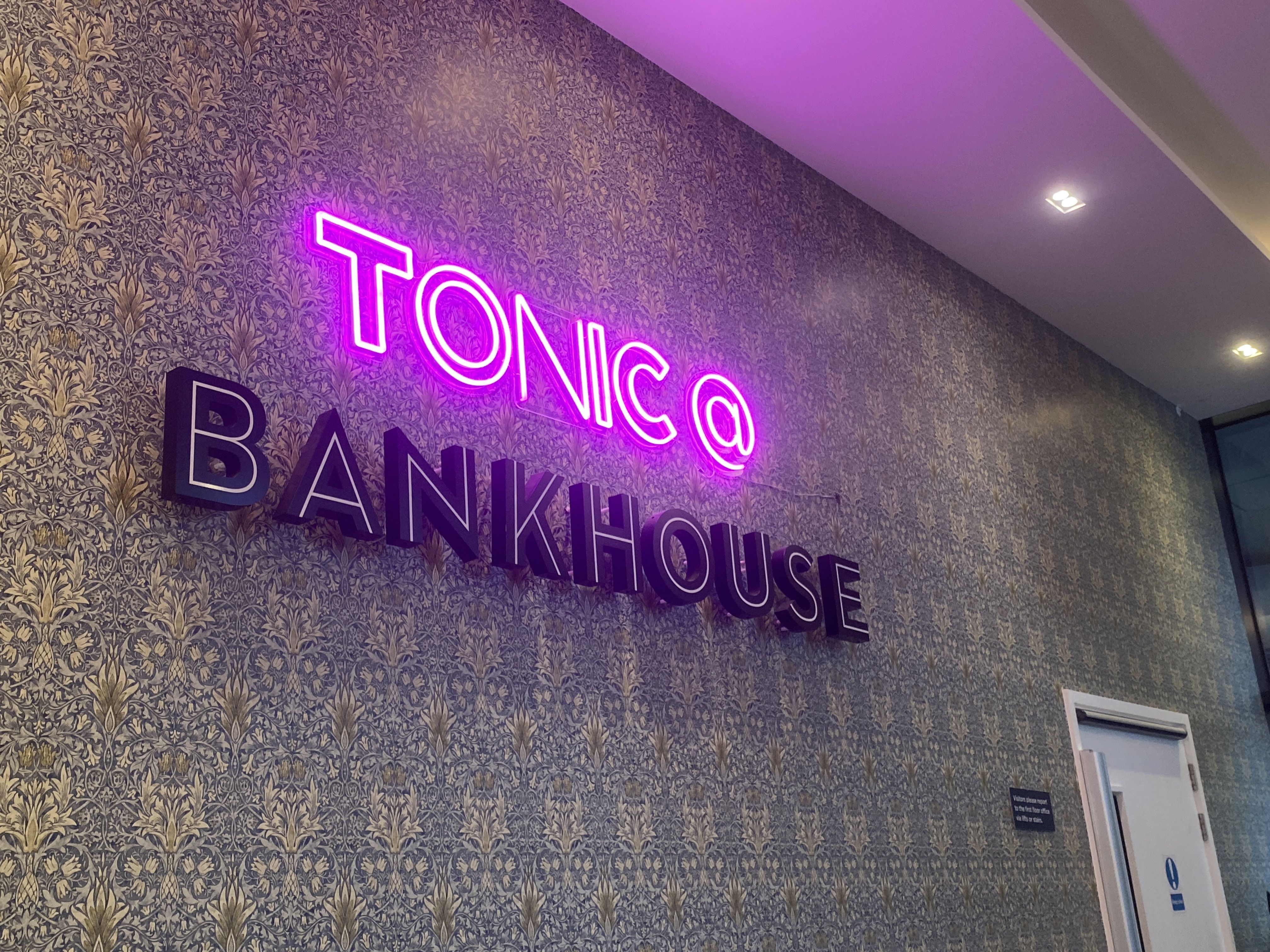
The current state of LGBTQ+ retirement living in the UK
LGBTQ+ affirming or LGBTQ-majority accommodation already exists in parts of Europe, Scandinavia and North America, but has been comparatively slow to develop in the UK.
The experiences of older LGBTQ+ people in the UK are are often ignored and overlooked and this is especially true where abuse is concerned.
New cases of abuse amongst older LGBTQ+ people emerged in August 2023 when Ted Brown spoke out about the abuse that his late civil partner Noel Glynn had faced at a care home in 2018.
In the first case of its kind, Ted was awarded £30,000 by Lambeth Council in recognition of the homophobic abuse Noel had faced.
This means that in the same London Borough where Tonic now thrives, older LGBTQ+ are living with direct experience of the violence that people like them can still face.
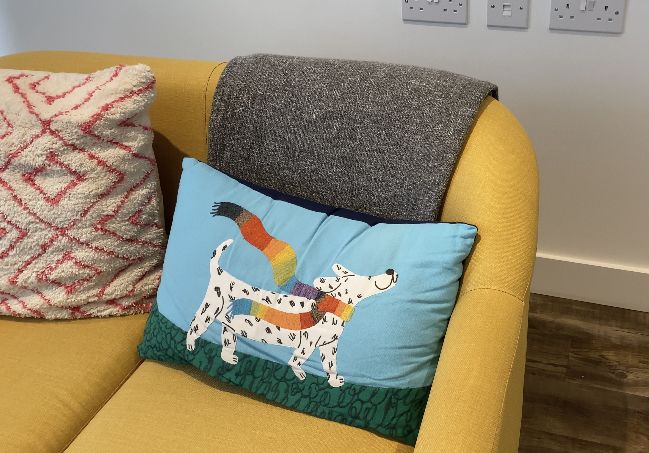
Image credit: Madeleine Anderson
The care charity Compassion in Care has reported on the abuse being faced by LGBTQ+ people in residential care settings, highlighting 486 cases of alleged mistreatment across the UK.
Of the 486 cases that were been flagged to the charity, 481 took place in care homes that were rated good or outstanding by the Care Quality Commission. None took place in homes that were rated inadequate.
It is against this backdrop of abuse that the leading LGBTQ+ charity Stonewall has called for statutory LGBTQ+ training to help tackle abuse in the care sector.
Tonic currently has over 500 people on its register of interest list, but these people are not motivated by fear alone. Tonic head of operations Bob Green OBE has described Tonic as an oasis in the heart of London, where compassion and creativity draw residents in, offering a forever home and a family later life.
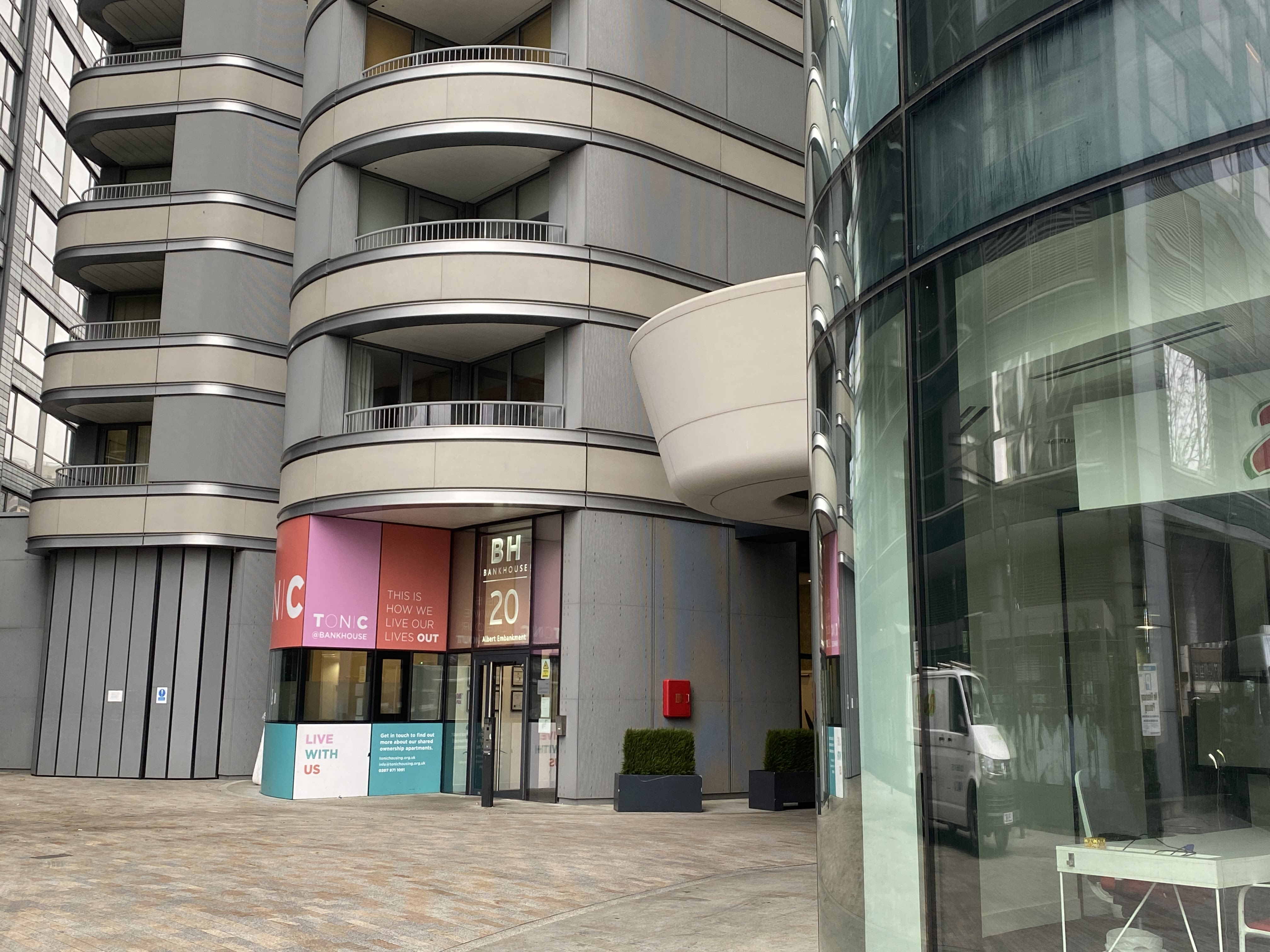
How do older LGBTQ+ people feel about where they live?
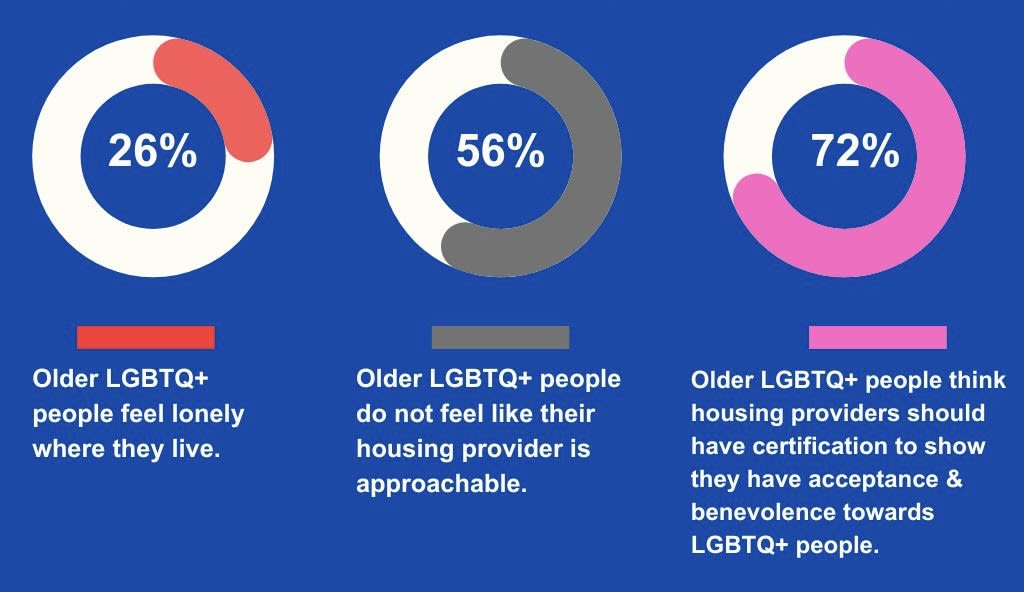
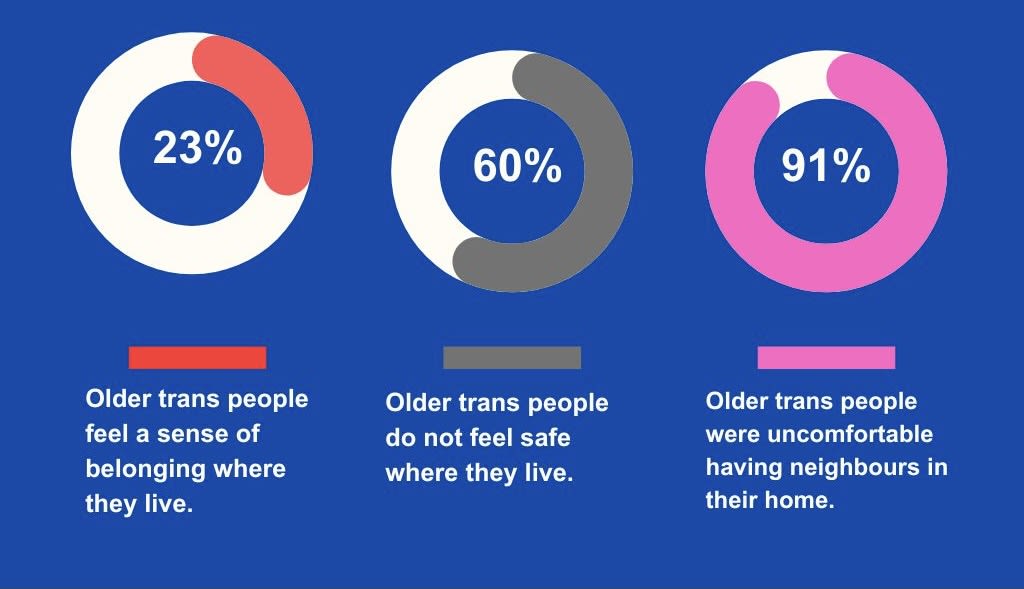
Source: HouseProud & University of Surrey (2017) No Place Like Home? Exploring the concerns, preferences and experiences of LGBT*Q social housing residents.
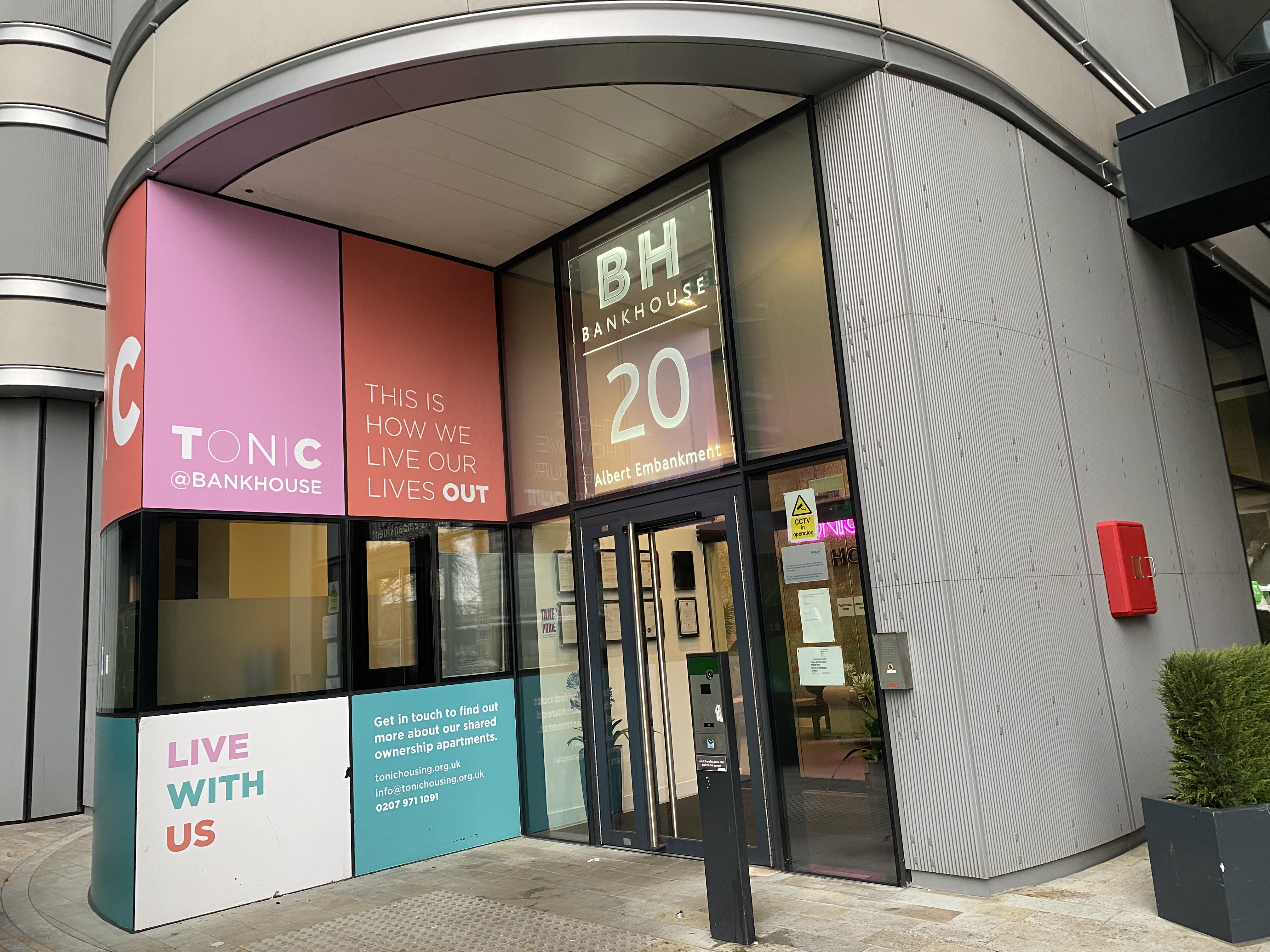
So what is Tonic all about?

Bob sees community as central to everything that Tonic does, working hard to ensure that residents interests are championed and understood within an independent living environment.
"The location of Tonic is fabulous, the apartments are gorgeous, but actually when residents arrive the first thing that they want is that sense of community.
"A lot of older LGBT people feel isolated, so they want to live amongst the people who are part of their community.
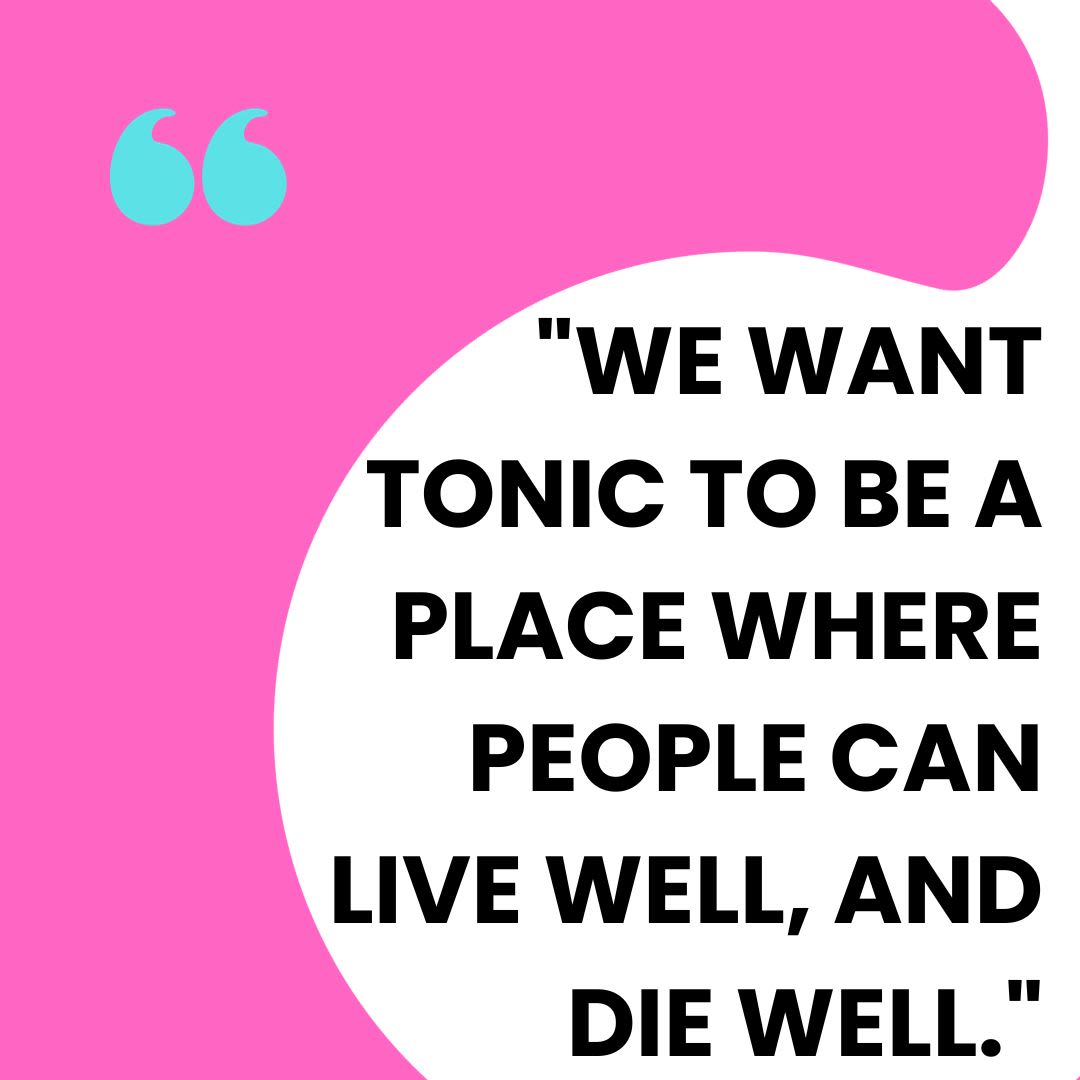
"People will tell you that this has now become their family. We've had two residents die at Tonic over the past couple of years, and that's really heartbreaking for the people that lived with them and knew them.
"We want Tonic to be a place where people can live well, but also where people can die well and die with their community around them.
"If someone is unwell, it's often their neighbours at Tonic who go out and do their shopping for them. So it really is building that community around each individual.
"We're excited to see where we go in the future, but at the minute we want to focus on Bankhouse and make that a success."
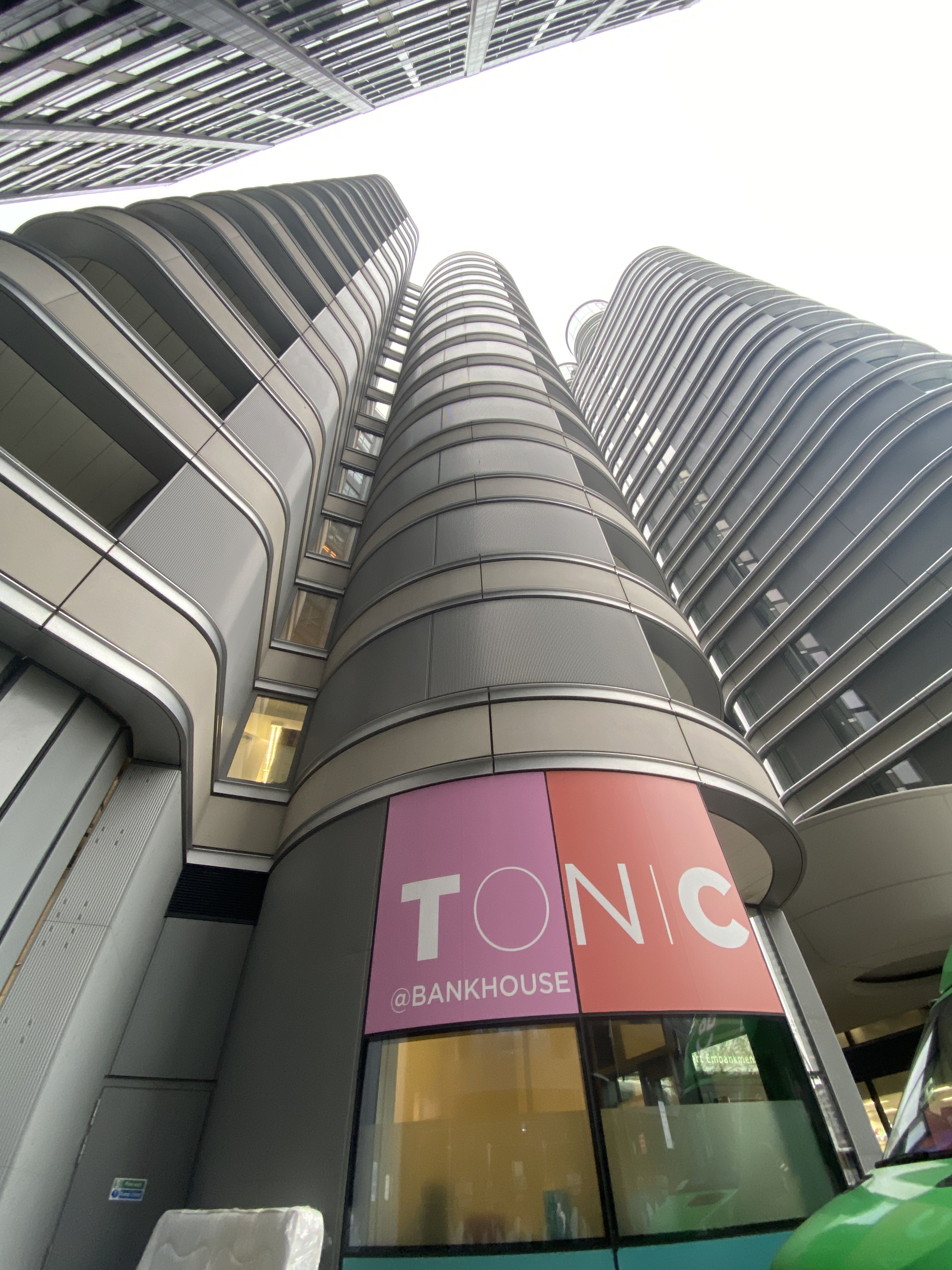
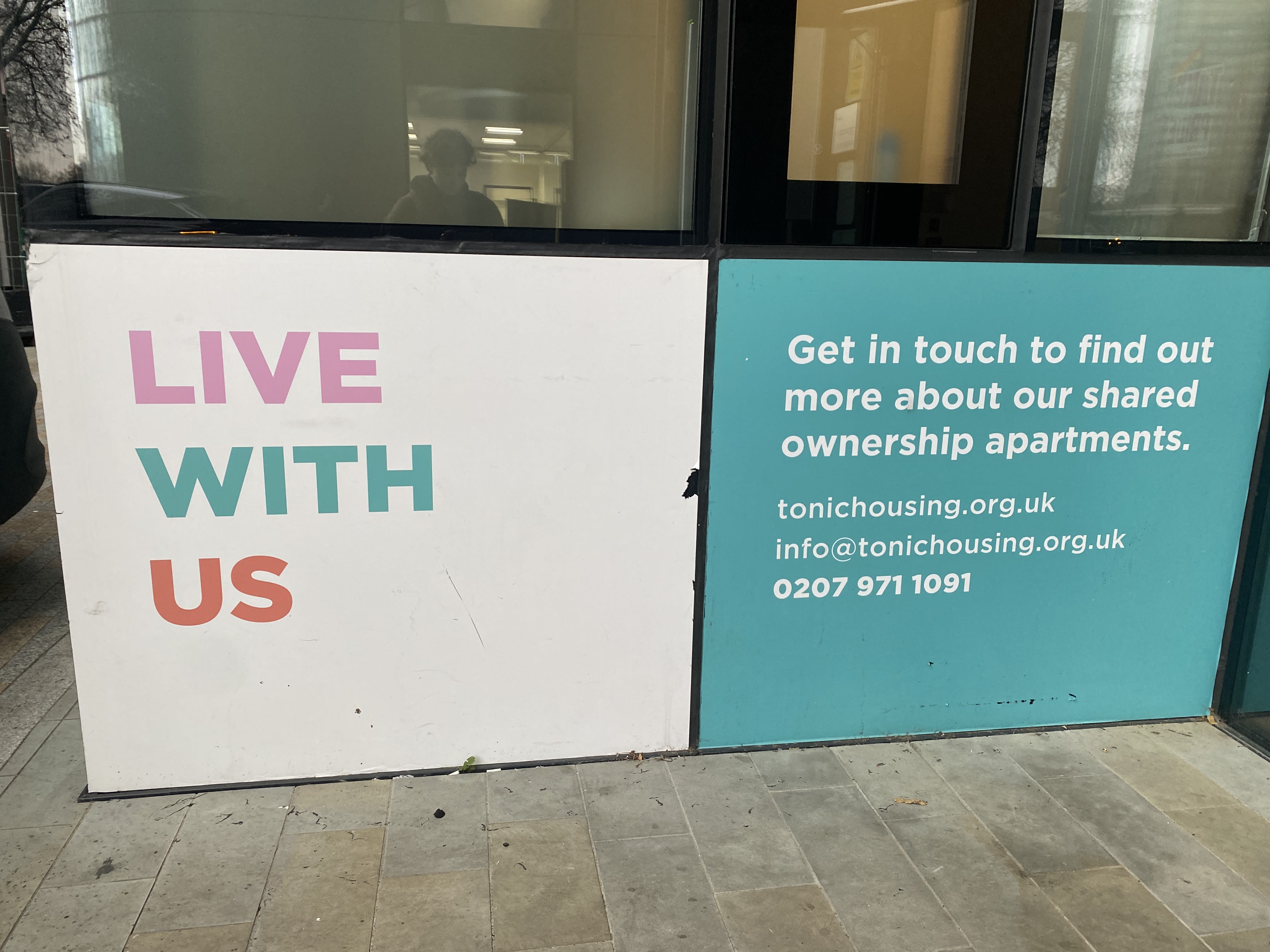

What do the residents say?
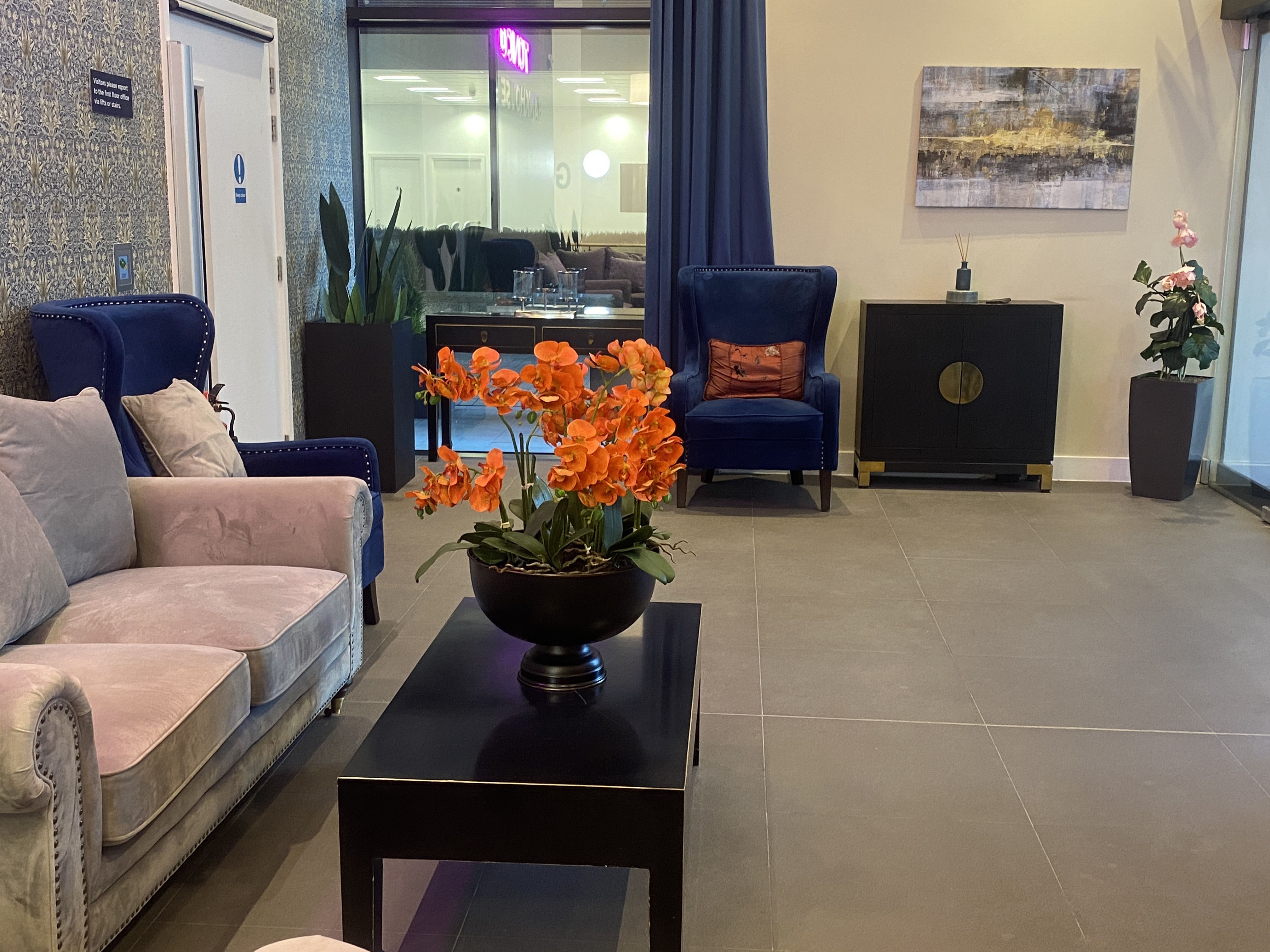
Chek-Min Ong
Chek-Min Ong, 74, was in one of the first couples that arrived at Tonic. He is a retired nurse and now lives on his own following the death of his partner whose health deteriorated during the pandemic.
"As gay people you live through this rut of trying to blend into society knowing that some people don’t want you or like you," he said.
"Tim, my deceased partner and I, had always discussed our last move.
"We thought it would be wonderful to live somewhere LGBTQ friendly so that we could make new friends and have a strong community to live in."
When Min first started looking for gay-friendly retirement accomodation in the UK he was unable to find anything, the nearest appropriate accomodation was in Spain or elsewhere in mainland Europe. Min began to worry that he wouldn't find what he needed whilst his partner's physical condition continued to worsen following a stroke.
"When the pandemic was over I thought it was really time for us to move and downsize, I was getting really frantic about where to move to, because by that time Tim’s stroke had taken away his communication skills.
"So when we found Tonic we fell in love, as this was exactly the kind of place where we wanted to live. We were looking for a utopia basically, and then we found this place and it was perfect."
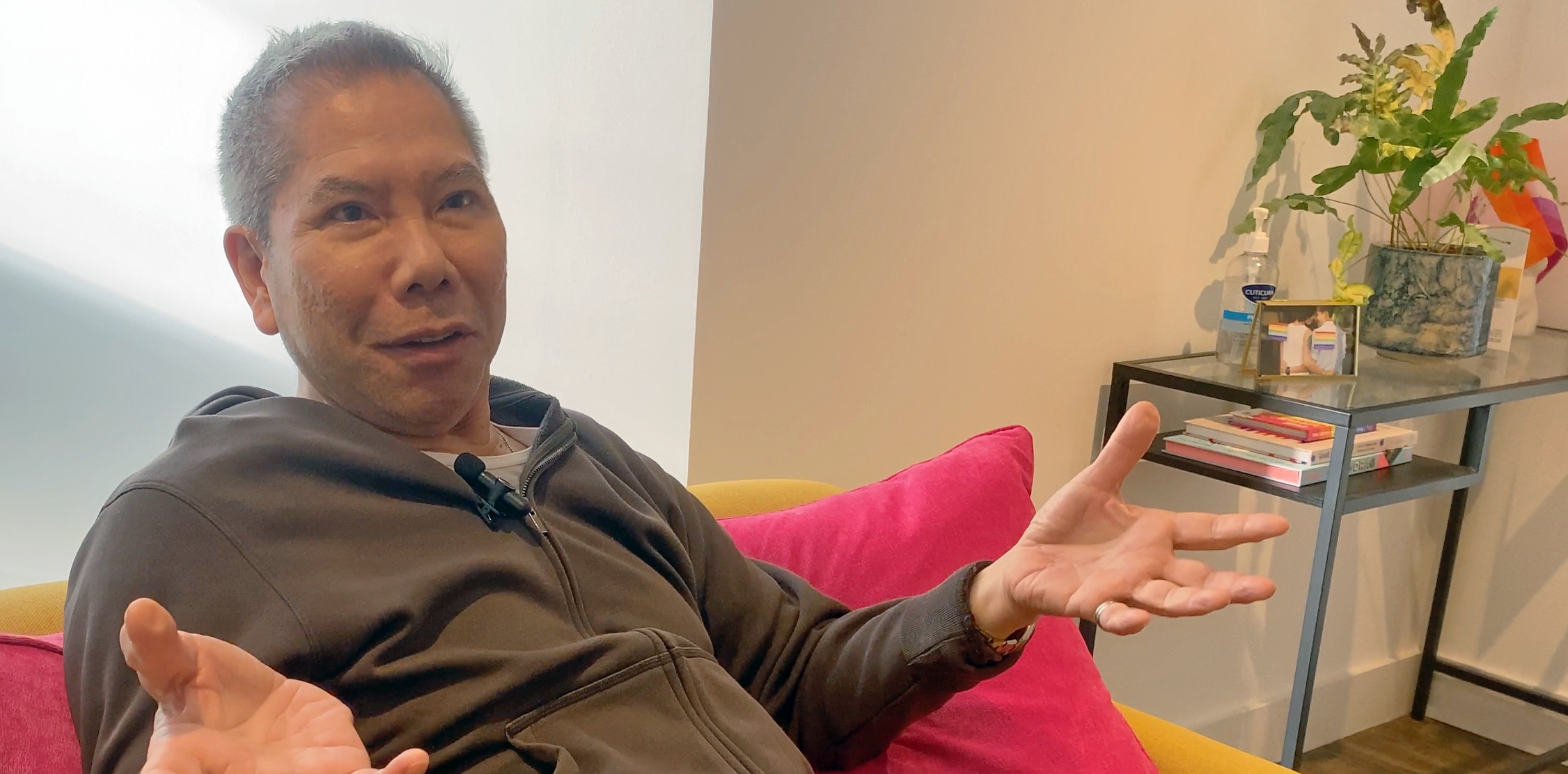
John Sullivan
John Sullivan, 64, moved into Tonic after the death of his partner which left him living alone for the first time in decades. He says he has found happiness and security here and is enjoying the convenience that Tonic brings.
"In August 2020 my late partner died who I had lived with for 40 years," he said.
"I feel free here, I don’t feel like I’m stuck in. It’s perfect, it’s got everything I need.
"It's so bright and there is a really nice vibe, it's a very very friendly place and there are so many smiles which is unusual."
John's motto is 'educate don't alienate,' and he believes a lack of understanding about gay people is what breeds intolerance. For John, opening up conversations is the first step to dispelling prejudice.
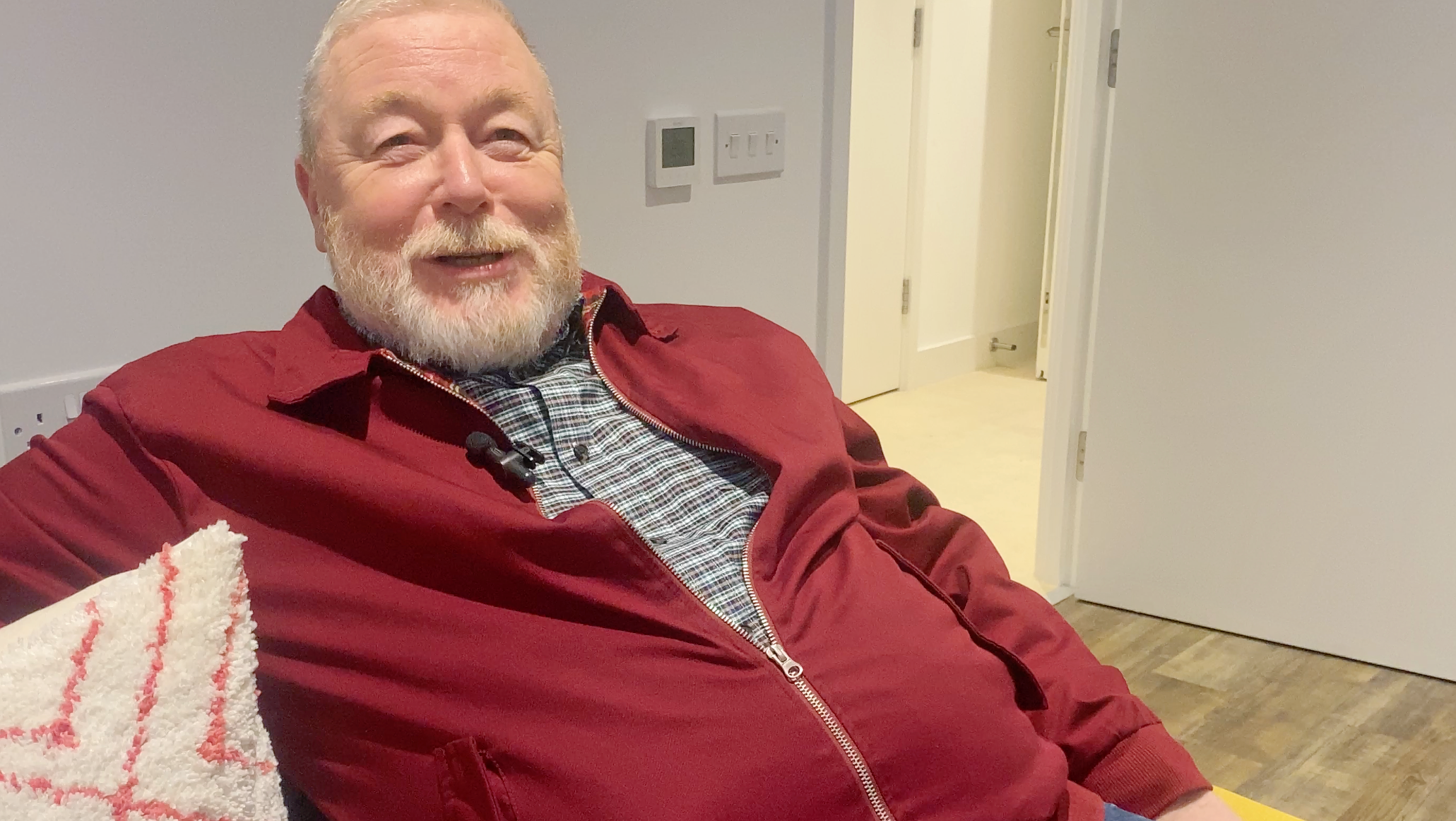
Willie Millar
Willie Millar, 88, is originally from Scotland but lived in Tottenham before he moved to Tonic. Willie says he is from a generation where gay people 'kept their head down,' especially because of the threat of imprisonment and exclusion. Now, Willie has a safe space where he can enjoy his life in comfort, maintaining independence without any fear of retribution or threat.
"We've all made a big leap into the unknown.
I decided I was gay a long while ago, but I don’t care what anybody else thinks now because I’m safe here.
When I was young being gay was criminal, I didn’t think it had influenced me in anyway, but it had. Coming here was like, well, happy happy," Willie explained.
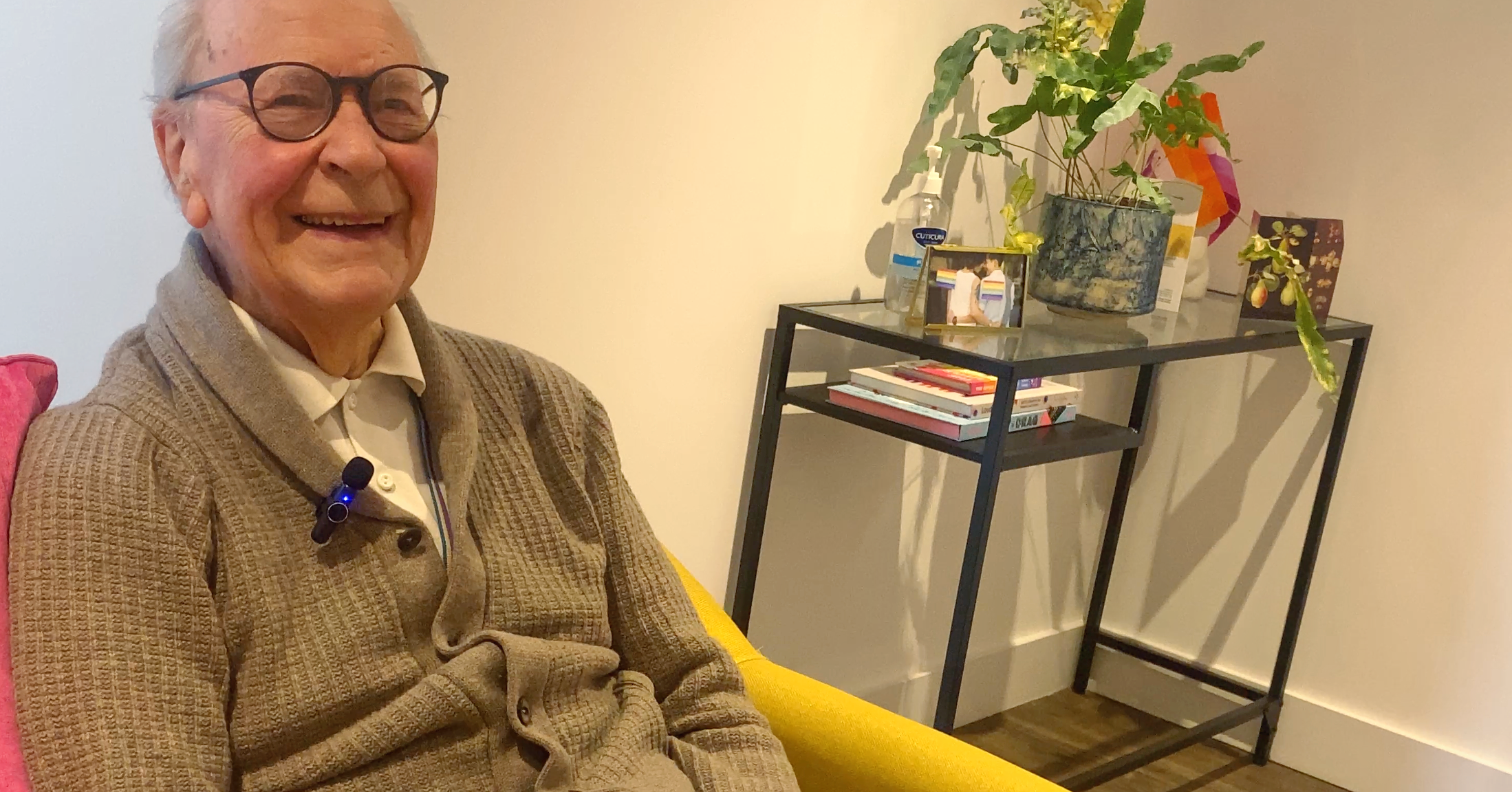
Margaret's story
Margaret, 78, is a Tonic resident who doesn't identify as LGBTQ+ but supports the community. She has early-stage dementia and chose to move to Tonic from Liverpool, seeing Tonic as a place where her gay son and his family would be able to visit her freely and without fear of judgement.
Before her move to Tonic, Margaret's children were travelling from London to Liverpool to stay with her every weekend.
The stress of the journey was hard to keep up and the family soon decided that a move to London would be best for Margaret, enabling her to be nearer to family who could give her the care that she needs.
Now Margaret gets a call every morning from a member of Tonic staff asking how she is and if there is anything she needs. She keeps up her own routine, whilst knowing that she won't be left alone as her memory loss progresses.
"It’s all great, you couldn’t ask for anything better in your old age!" Margaret said.
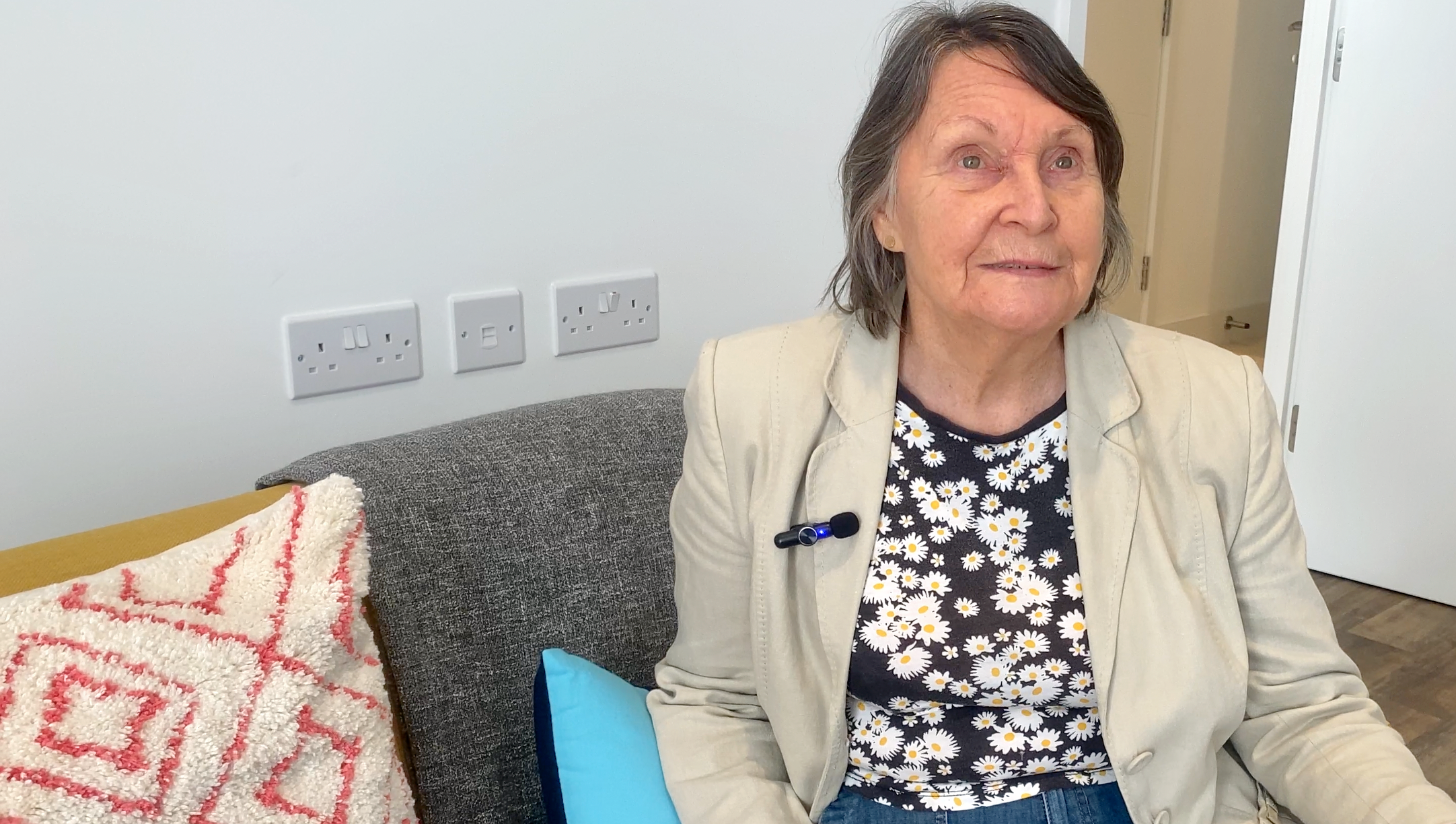
Keeping a busy schedule
Respecting the independence of residents is central to what Tonic does.
It is up to residents to decide which activities that they want in the timetable and many events are organised independently of staff.
Events like the monthly dinner club are arranged between residents, with everyone bringing their own dish and a different a person hosting each time. Tonic builds community within community, providing a safe and secure environment which enables friendships to flourish and relationships to bloom.
A Tonic favourite is the weekly bar night on a Thursday where staff and residents are joined by volunteers to have drinks and relax.
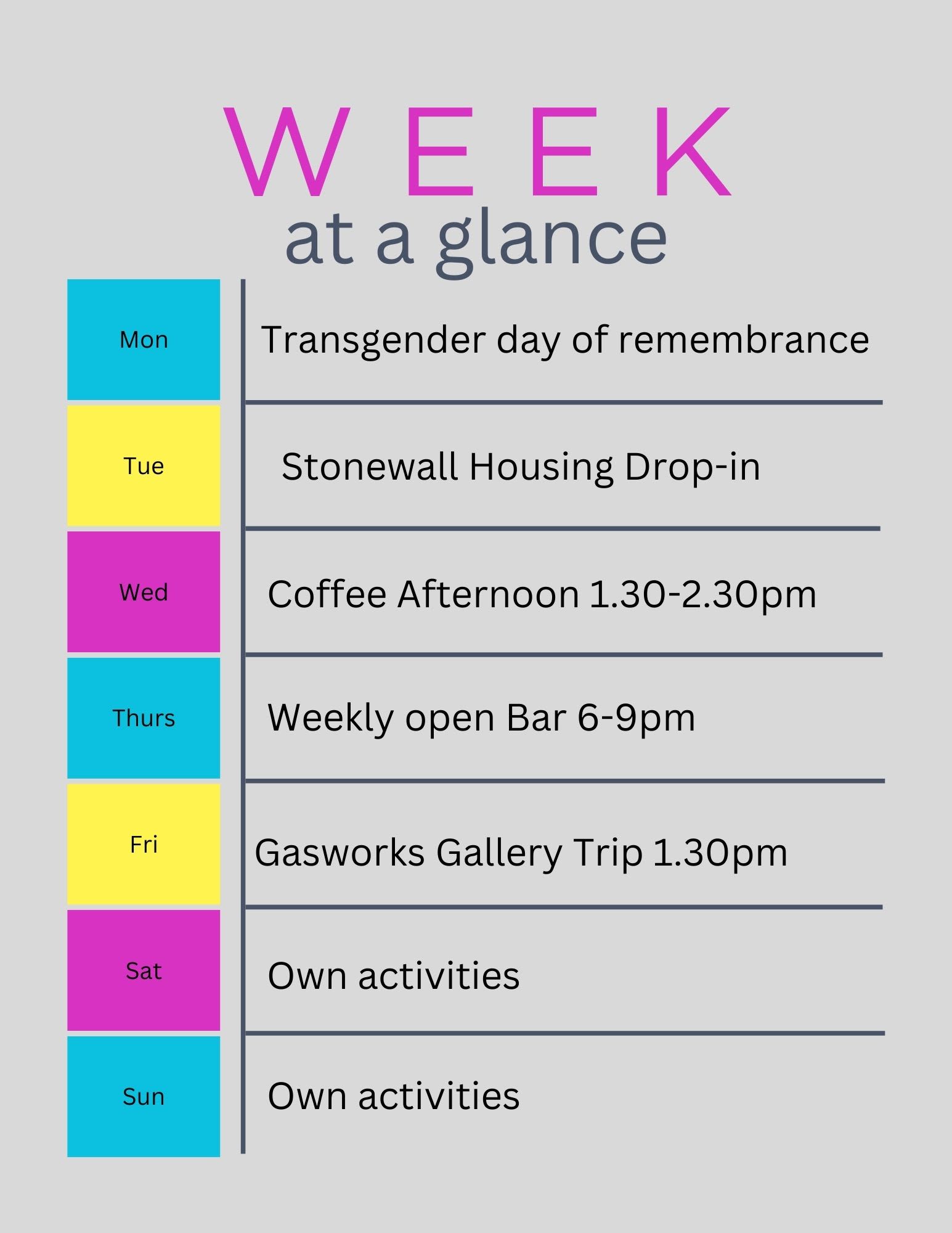
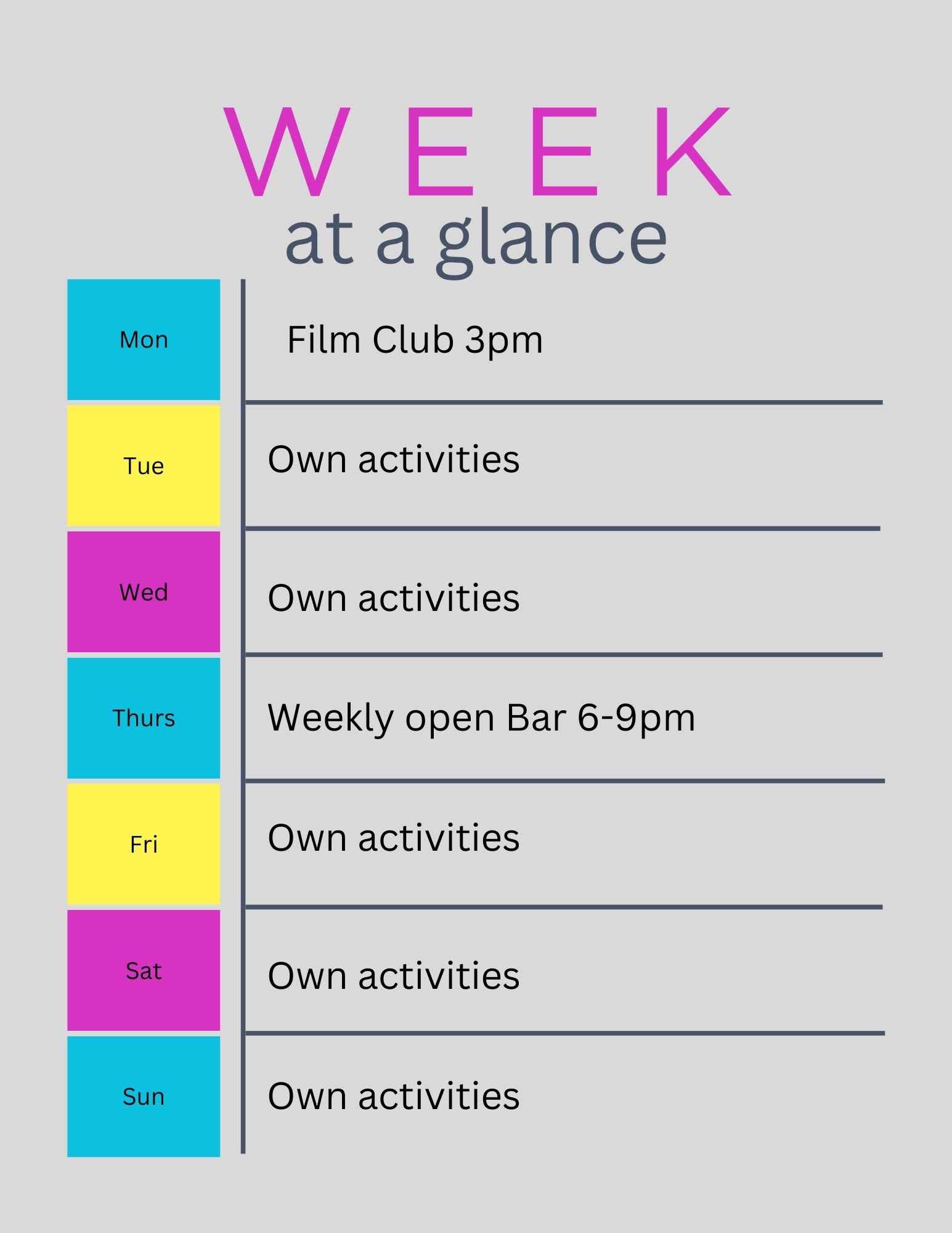
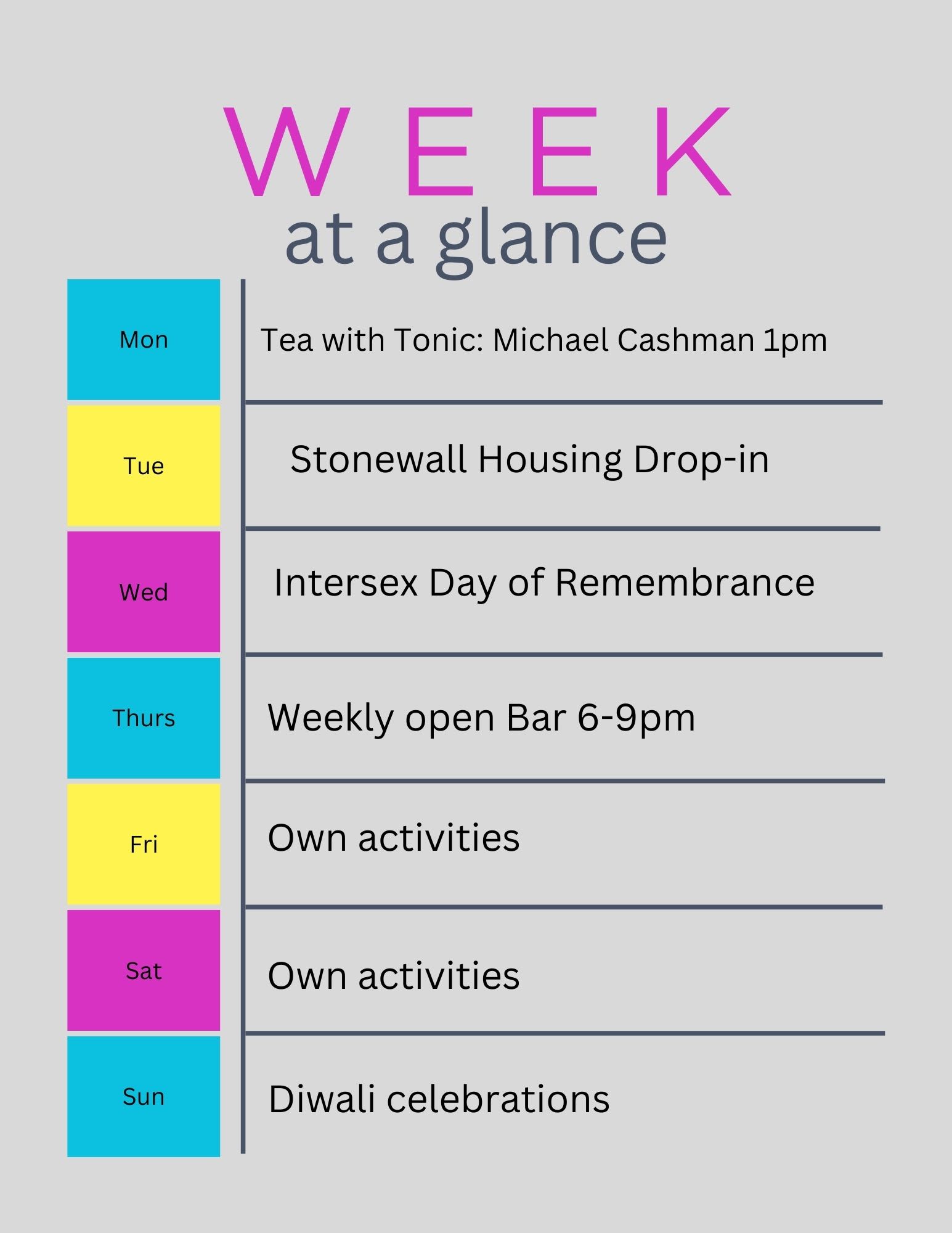
Planning for the future
Alongside its benefits, living at Tonic does come with some financial cost.
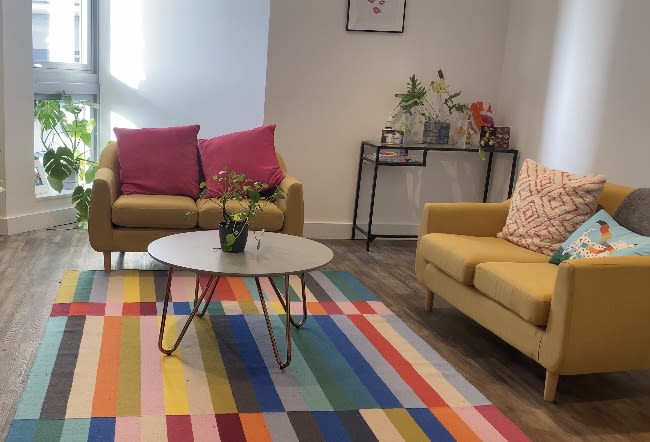
Any additional care requirements and accomodation adjustments are also paid for by residents.
Tonic currently operates a shared ownership scheme which allows buyers to purchase a share in the property of up to 75%. Whilst Tonic does charge rent on the remaining share, the first 25% of their share is always rent free.
The price range starts from £126,875 for 25% ownership of a one-bedroom apartment, up to £592,500 for 75% of a two-bedroom apartment.
In the future, Tonic hopes to attain a social landlord status which would allow the organisation to provide some lower-cost rental accommodation across the UK.
For now, the focus remains on Bankhouse and its residents.
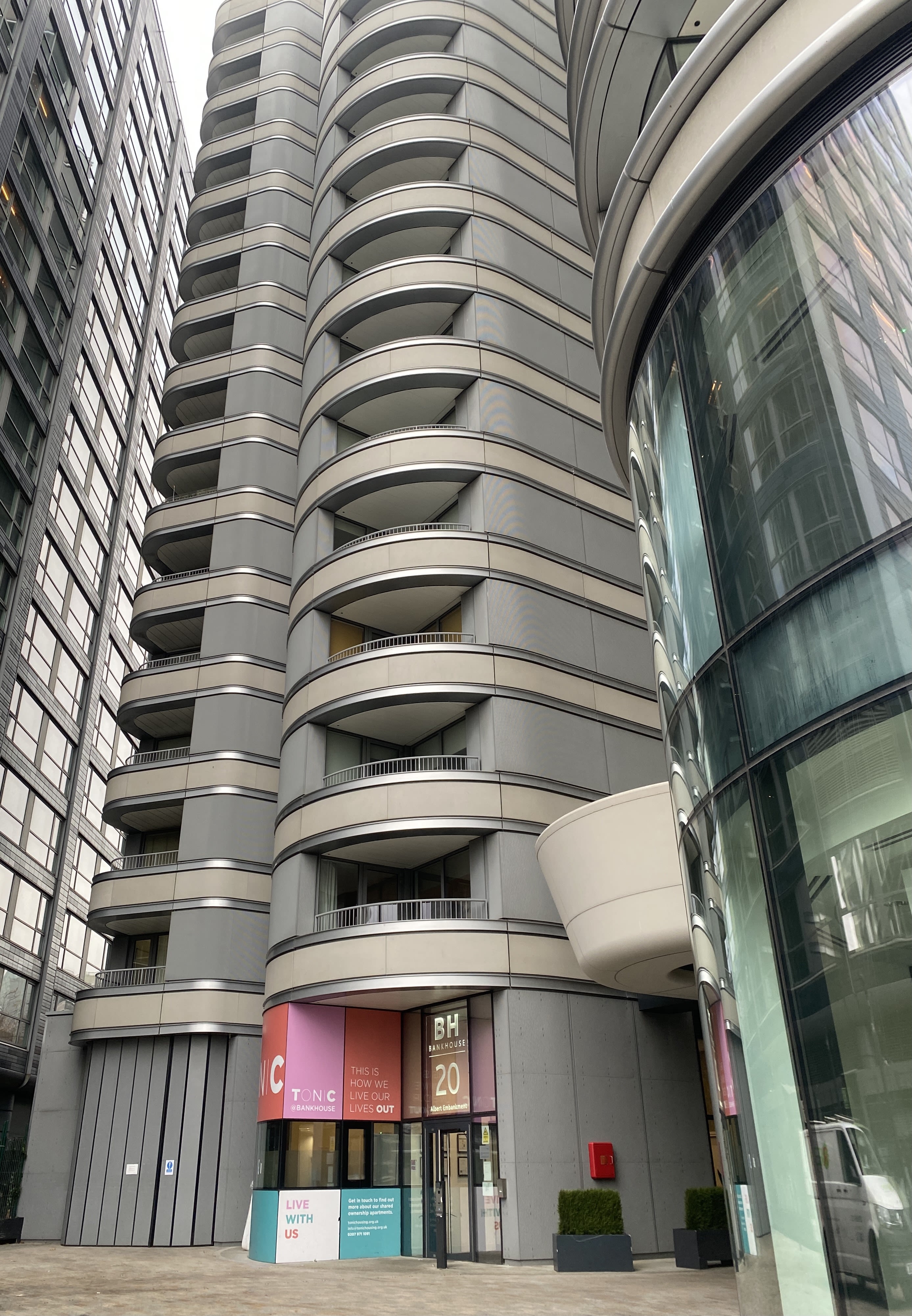
Summarising what Tonic means to him, Min said: "It's like somebody snapped their fingers and gave me a place from my dreams, like there you go!"
For Min and many others, Tonic is a home and a haven, where safety is a given and the opportunities to thrive are plenty. At a time of growing polarisation, Tonic offers hope, revealing what can be achieved through queer community and care.
All featured images taken by Madeleine Anderson.
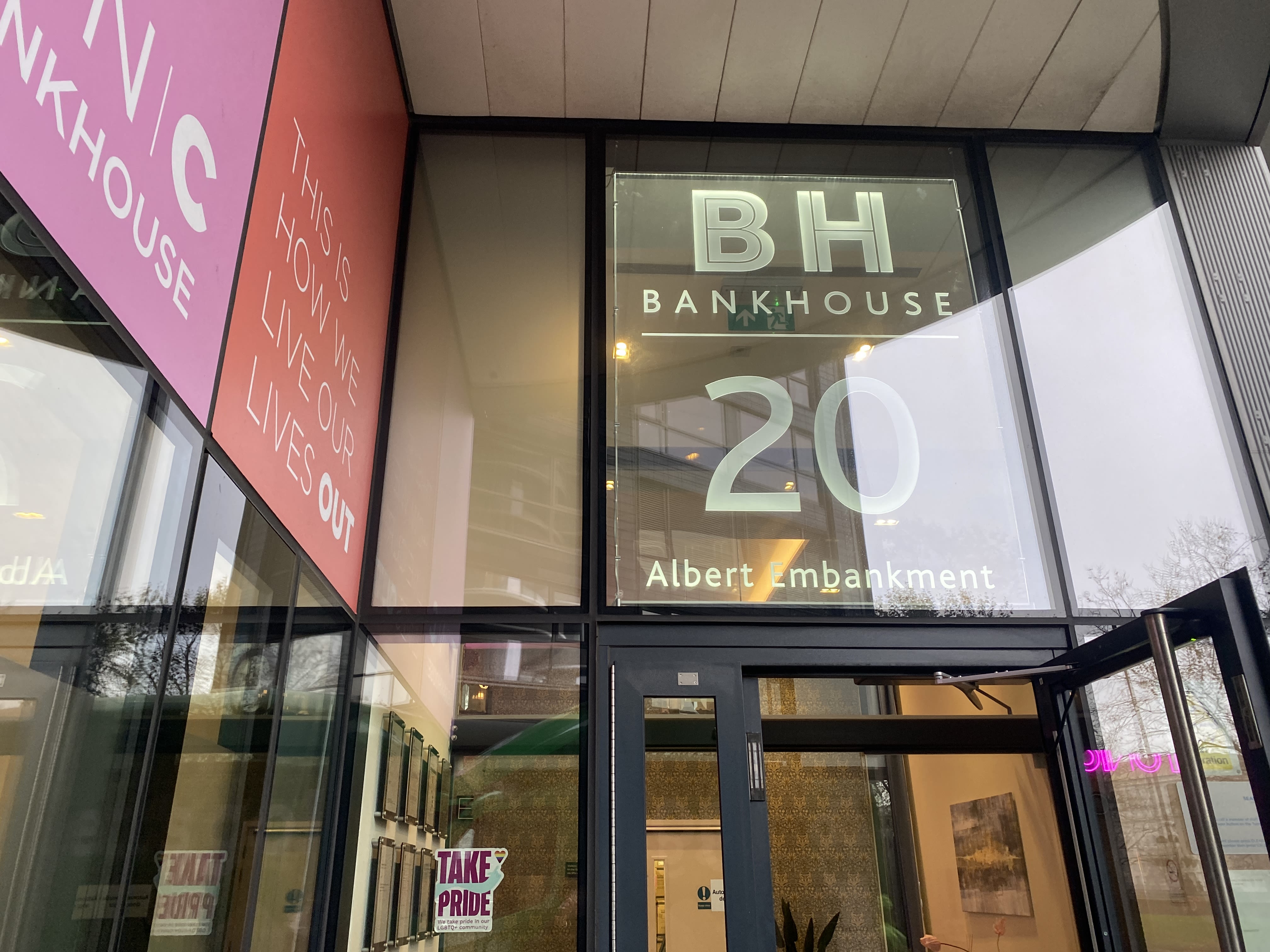
The future is proud

